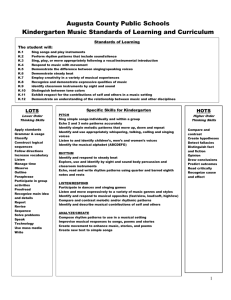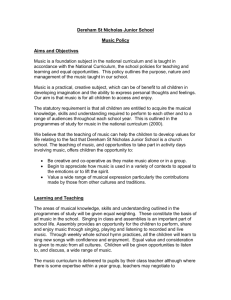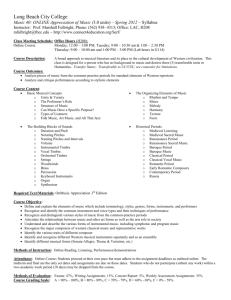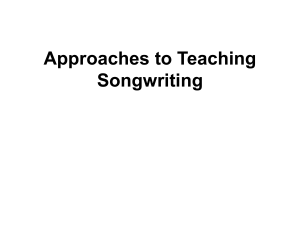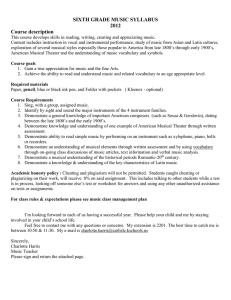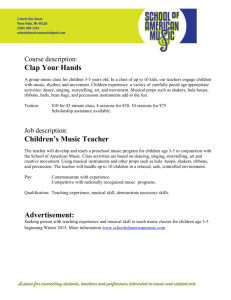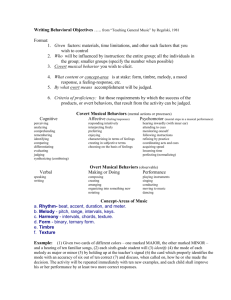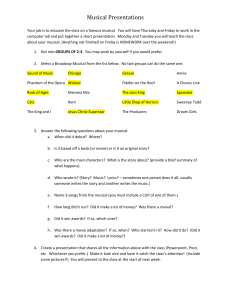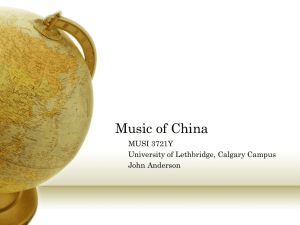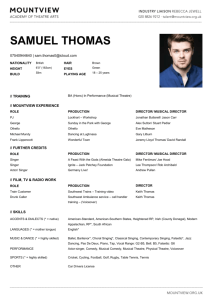Music Policy : file - Frenchwood Community Primary School
advertisement
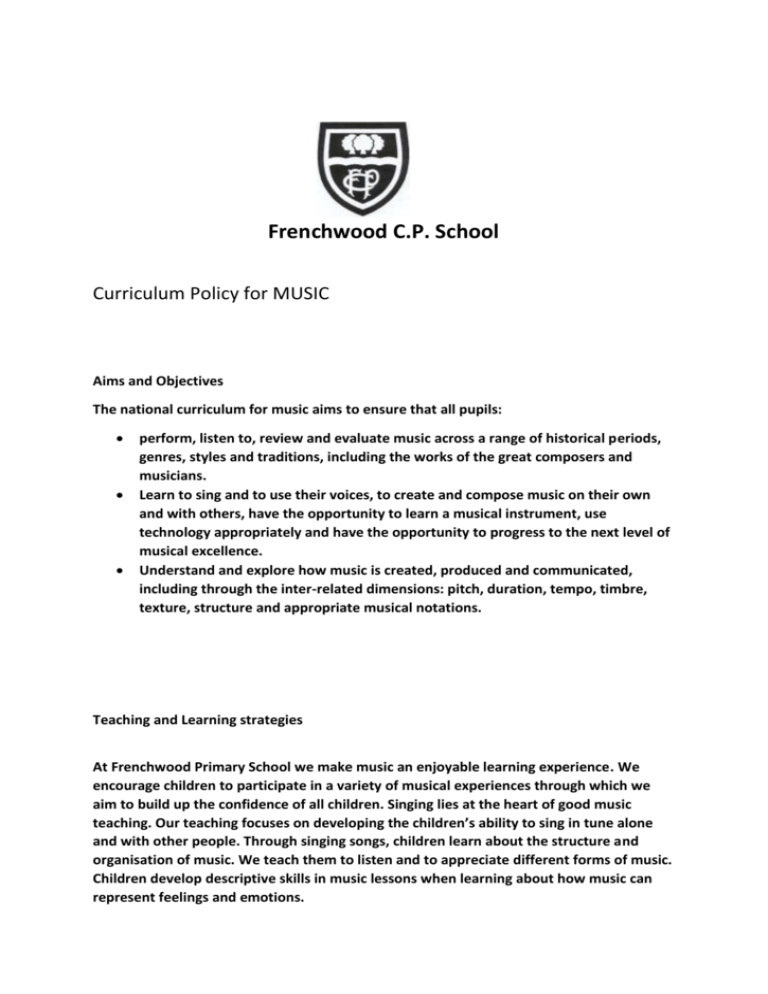
Frenchwood C.P. School Curriculum Policy for MUSIC Aims and Objectives The national curriculum for music aims to ensure that all pupils: perform, listen to, review and evaluate music across a range of historical periods, genres, styles and traditions, including the works of the great composers and musicians. Learn to sing and to use their voices, to create and compose music on their own and with others, have the opportunity to learn a musical instrument, use technology appropriately and have the opportunity to progress to the next level of musical excellence. Understand and explore how music is created, produced and communicated, including through the inter-related dimensions: pitch, duration, tempo, timbre, texture, structure and appropriate musical notations. Teaching and Learning strategies At Frenchwood Primary School we make music an enjoyable learning experience. We encourage children to participate in a variety of musical experiences through which we aim to build up the confidence of all children. Singing lies at the heart of good music teaching. Our teaching focuses on developing the children’s ability to sing in tune alone and with other people. Through singing songs, children learn about the structure and organisation of music. We teach them to listen and to appreciate different forms of music. Children develop descriptive skills in music lessons when learning about how music can represent feelings and emotions. Curriculum Planning (includes N.C. programme of study, school themes & KLIPS) Our school uses the national scheme of work for music as the basis for its curriculum planning. Music is mainly taught through our theme lessons. If the class theme is a history topic, the class will listen to, appraise and recreate music from that period. If the class theme is a geography topic, the children will listen to, appraise and recreate music from the place studied. Science topics are also visited in music lessons. In order to teach the musical skills (pitch, duration, timbre and texture) we also use a commercial scheme, Music Express. While there are opportunities for children of all abilities to develop their skills and knowledge in each teaching nit, the planned progression built into the scheme means that children are increasingly challenged as they move through the school. We also subscribe to the Lancashire Music Service interactive resource, which offers units of work across a wide range of historical periods, genres, styles and traditions. Medium term plans are provided and progression through lessons in ensured. Early Years Foundation Stage We teach music in Nursery and Reception as an integral part of the topic work covered during the year. We relate the musical aspects of the children’s work to the objectives set out in the Early Learning Goals which underpin the curriculum planning for children aged three to five. Music contributes to a child’s personal and social development. Counting songs foster a child’s mathematical ability and songs from different cultures increases a child’s knowledge and understanding of the world. Inclusion (SEN, EAL, G & T) We teach music to all children, whatever their ability. Teachers provide learning opportunities matched to the needs of children with learning difficulties, and our work in music takes into account the targets set for individual children. We recognise that there are children of widely different musical abilities in all classes, so we provide suitable learning opportunities for all children by matching the challenge of the task to the ability of the chid. We achieve this is a variety of ways by: setting common tasks which are open-ended and can have a variety of responses setting tasks of increasing difficulty grouping children by ability in the room and setting different tasks to each ability group Providing resources of different complexity depending on the ability of the child Using classroom assistants to support the work of individuals or groups of children Resources There are sufficient resources for all music teaching units in the school. We keep resources for music in a central store which is accessible for all staff within the school. Assessment Teachers assess children’s work in music by making informal judgements as they observe them during lessons. At the end of the year the teacher makes a summary judgement about the work of each pupil in relation to the National Curriculum level of attainment and records these. Monitoring and Review The quality of music lessons is monitored by the music subject leader through lesson observations, mentoring, coaching and team teaching.

